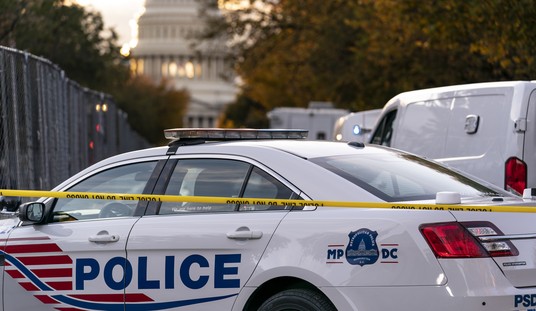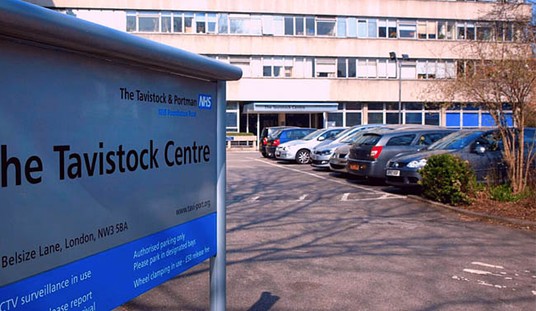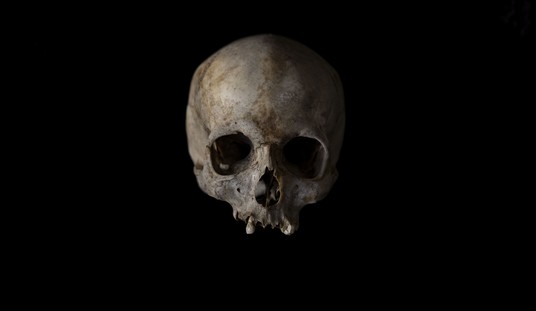There are plenty of arguments out there that it should hurt him, as a hint of how he’d behave as president towards the judiciary, but not so many arguments that it will hurt him. How come? I’d guess it’s because only a fool would presume to predict that any single Trump controversy is damaging when so few of his “gaffes” hurt him in the primaries, but Sean Trende thinks it may have to do with the sheer amount of stultifying groupthink within the anti-Trump commentariat. If you’ve convinced yourself that he can’t win because, well, he just can’t then you’ll forever be on the lookout for supposedly major mistakes that lead to his doom.
But what if his attacks on Curiel weren’t a major mistake?
[T]here is a counter argument to be made here. What aren’t people talking about right now? They aren’t talking about the facts of the Trump University lawsuit (polling during the Republican primary campaign showed that this was Trump supporters’ biggest concern). They also aren’t talking about Hillary Clinton’s widely praised speech attacking Trump on foreign policy.
Of course, they are talking about Trump’s racially inflammatory comments. But people know this about Trump. There’s nothing new there. For better or for worse, I think it’s baked in. I’m not sure he loses more ground from this.
We saw this same routine during the Republican primary season: deflect some new bad news with an outlandish statement that sucks the oxygen out of the room, and push the news narrative into a feedback loop that he keeps going, comprised of already existing negatives. We were assured that this wouldn’t work in the campaign against Clinton. I certainly thought that. Yet, here we are again, in the aftermath of what was billed as the first Clinton salvo of the general election campaign…
Or consider the polling. Take the recent Public Policy Polling survey of registered voters in Florida, for example. It was conducted in the midst of the blowup over Trump’s “Mexican” judge comments and Clinton’s speech. If there’s one swing state where this dustup should have an effect, it is probably Florida. Yet Trump leads Clinton in the poll, for the first time in any poll since March.
This is the same guy who launched his campaign talking about Mexican rapists and who went on to call for banning Muslims from the country temporarily. If you’re bothered by him race-baiting a judge, chances are you were already off the Trump train. Even so, it’s easy to argue that the Curiel matter is at least a minor mistake for him. Look back at this post from yesterday. Per YouGov’s numbers, Republicans are still in his corner in attacking the judge, but just barely; meanwhile, Democrats and independents both say it was wrong of him to complain and racist to cite Curiel’s ethnicity. There’s evidence in the national polling too that he may have taken a hit — albeit a minor one.

Hillary has gained on Trump since he went after the judge at a rally in San Diego on May 27th, but only by the tiniest bit. She regained the lead from him on May 26th, the day before the rally; since then she’s added another 1.4 points to her total, a sign of modest momentum but nothing on the scale you might expect given the coverage of Trump and the judge on cable news. (Worth noting, though: In three of the four polls taken since May 27th, she’s led by at least four points, a wider spread than her 2.4 point lead in the national average. Her momentum because of this may be a bit larger than it at first appears.) Don’t forget either that Clinton laid Trump out in a well-received speech a week ago. Is the judge thing driving his numbers down, or was it her speech? Even if it is a backlash to the judge, is there any reason to believe that that backlash will last more than, say, another week? Reflect on this: We’re about as far removed from Election Day as we are from New Year’s Day. (Not quite as far, but almost.) At this point five months ago, Trump and Ted Cruz had barely begun to attack each other after spending months operating as allies. Imagine all the political sewage we’re going to have to wade through before we get to November. Who’s going to care about the Curiel thing by then? Maybe Hillary will resurrect it in an ad campaign but her target list is too long to focus on any single Trump “gaffe” for long. To the extent that it matters to voters, it’ll matter only as a faint glimmer in the pile of reasons one has not to vote for him. And if you’re disposed to vote for him, the glimmer will be obscured by the glare from the many reasons not to vote for Hillary.
You should read Trende’s piece in full, by the way. Trump fans will enjoy it more since it’s a critique of the other side but anti-Trumpers, especially those who still foolishly believe he’s a pushover for Hillary, will profit more from it as a caution against letting what you want to see happen guide your good sense about what’s likely to happen, i.e. wishcasting. I think Trende overstates how often that happens — if #NeverTrumpers were convinced that Trump’s a sure loser this fall, they wouldn’t be so eager to see him dumped at the convention — but after watching conservatives thrill to the idea in 2012 that “you didn’t build that” was somehow going to sink Obama, I think warnings about wishcasting are always beneficial. I’d add two warnings of my own, though. One is that, while it’s true that there’s a class and race dynamic that may contribute to groupthink among pundits on both sides (white, economically comfortable, educated at upper-tier schools), relying on that as the only explanation for their blindness about Trump’s chances is overdetermined. The reason I thought Trump would eventually fade in the primaries isn’t because I thought Republican consultants were geniuses and would outmaneuver him, it’s because I thought grassroots Republican voters would reject him for being personally obnoxious and not at all conservative. I had too much faith in them, not too little.
The other warning is that groupthink isn’t exclusive to the commentariat and that populists can be just as prone to it, if not more. Trende wouldn’t argue, I’m sure, although he might say that paid commentators have a professional duty to be on guard for ideological blinders since their livelihoods depend on their ability to see the political landscape clearly. Fair enough, but there’s no getting around the irony of scolding anti-Trumpers for like-mindedness when Trump currently sits at the center of the most committed cult of personality in modern American political history. (Not even Obama would have dared boast in 2008 that he could shoot someone on Fifth Avenue and his fans wouldn’t care.) Offhand, between encounters on Twitter and reading political commentary online, with one exception I can’t think of a single Trump fan who likes Trump, will vote for Trump, yet also thinks he’s going to lose this fall. It’s the bias Trende describes among pro pundits but in reverse; in extreme cases, a Trump fan may tell you that he’s going to put California and New York in play. (Er, Trump himself seems to be among this group.) Almost to a man, they’re completely convinced that victory is inevitable, the polls notwithstanding. The one exception I remember was one of his alt-right fans who responded to a Trump critic on Twitter by saying that he hopes Trump loses to Hillary because, er, that’s what’s going to trigger the long-awaited race war. So, yeah, groupthink goes both ways. And people on the right who swooned over the idea of “unskewing the polls” in 2012 shouldn’t forget it, whether for Trump or against him.








Join the conversation as a VIP Member